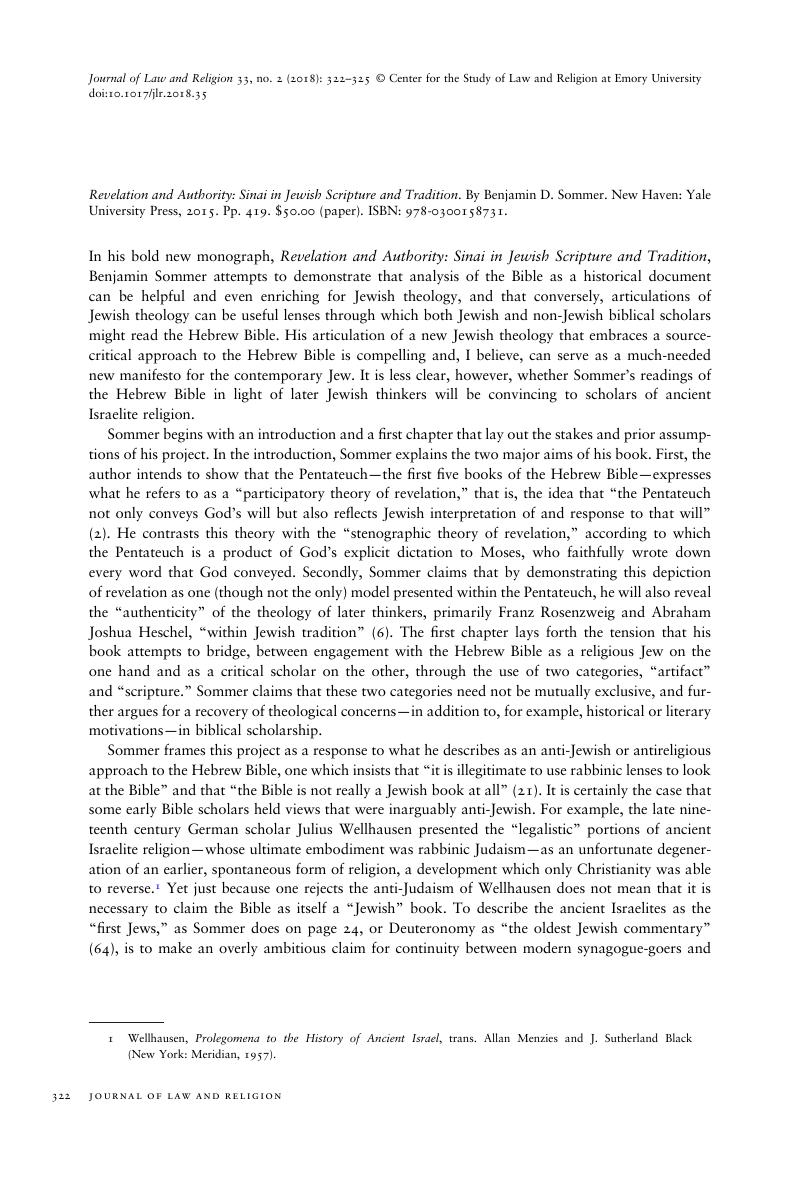Published online by Cambridge University Press: 20 November 2018

1 Wellhausen, , Prolegomena to the History of Ancient Israel, trans. Menzies, Allan and Black, J. Sutherland (New York: Meridian, 1957)Google Scholar.
2 There is currently a live scholarly debate as to whether or not the category of “religion” existed at all in late antiquity (several hundred years, of course, after the composition of the latest works of the Pentateuch). See, for example, Boyarin, Daniel and Barton's, Carlin Imagine No Religion: How Modern Abstractions Hide Ancient Realities (New York: Fordham University Pres, 2016)Google Scholar. On the appropriate use of the word Jew to describe late ancient people, see Timothy Michael Law and Charles Halton, eds., “Jew and Judean: A Forum on Politics and Historiography in the Translation of Ancient Texts,” special issue, Marginalia Review of Books (August 26, 2014), http://marginalia.lareviewofbooks.org/jew-judean-forum/. Sommer himself also expertly addresses some of the important theological differences between early biblical audiences and post-biblical Jews in his previous book, The Bodies of God and the World of Ancient Israel (Cambridge: Cambridge University Press, 2009)Google Scholar.